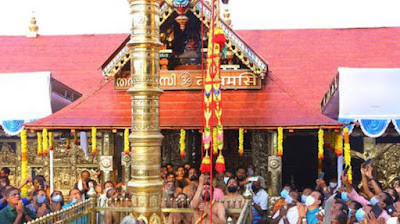The Sabarimala Temple in Kerala, India, has been at the center of a contentious legal battle regarding women’s entry. Here’s a summary of the key events:
2018 Verdict:
Controversy and Protests:
- The verdict led to massive protests in Kerala.
- Women who attempted to enter the shrine faced resistance, with some being assaulted or turned away.
- The temple’s historical ban on women was based on the belief that menstruating women were considered “unclean.”
Recent Development (2019):
Current Situation:
- While women can still legally enter the temple, it remains a contentious issue.
- The fight for equality before the gods continues, as the case will be reopened by a larger seven-judge bench.
What were the Arguments For Women’s Entry?
Equality and Fundamental Rights:
- Advocates argue that women have the same constitutional right to worship as men. Denying them entry based on gender violates their fundamental rights under Article 25 of the Indian Constitution.
- Equality before the gods should prevail, irrespective of biological factors.
Modernization and Progress:
- Society has evolved, and discriminatory practices should not persist. Allowing women’s entry reflects a progressive outlook.
- The 2018 Supreme Court verdict emphasized this perspective.
Breaking Stereotypes:
- Allowing women of all ages to enter the temple challenges traditional stereotypes about menstruation and purity.
- It promotes a more inclusive and open-minded society.
Arguments Against Women’s Entry:
Religious Tradition and Custom:
- Opponents argue that the temple’s historical practice of excluding women is deeply rooted in tradition.
- They believe that the deity, Lord Ayyappa, is celibate and that women of reproductive age should not disturb his meditation.
Preserving Sanctity and Rituals:
- Some devotees believe that allowing women would disrupt the temple’s sanctity and rituals.
- The temple’s unique practices, including the 41-day penance (vratham), are considered essential for spiritual purity.
Respecting Devotees’ Sentiments:
- Devotees who adhere to the existing practice feel emotionally connected to it.
- They argue that their sentiments and faith should be respected, even if it means maintaining gender-based restrictions.




Comments